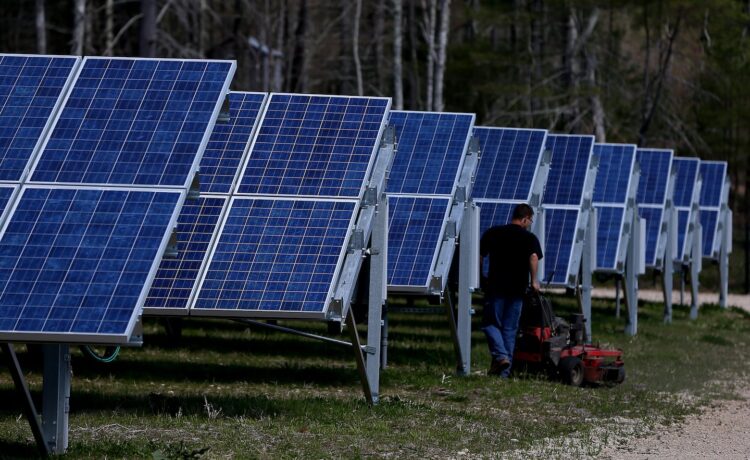In Massachusetts, for example, a $156 million program intended to bring solar panels to low-income and disadvantaged communities was paused, as were federally-funded efforts to remediate brownfields and reduce water pollution.
The Trump administration argued in a case before the US District Court of Rhode Island that the judge’s order that blocked the funding freeze did not broadly apply to President Trump’s executive orders, including one that paused grants funded by the Inflation Reduction Act.
The Inflation Reduction Act appropriated hundreds of billions to accelerate the energy transition away from fossil fuels and is a primary target for cuts under Trump as part of his goal to terminate what he calls the “Green New Deal.”
On Monday, US District Court Judge John McConnell rejected the Trump administration’s argument that executive orders freezing clean energy and transportation infrastructure funding should stand. McConnell wrote that the administration had violated the court’s order and directed the administration to resume payments for all programs.
“These pauses in funding violate the plain text of the [temporary restraining order],” McConnell wrote.
“The defendants must immediately restore withheld funds, including those federal funds appropriated in the Inflation Reduction Act.”
Advocates cheered the court’s order.
“Today’s enforcement order is a significant victory that must be heeded in order to restore a broad range of frozen federal funding, from climate initiatives to NIH [National Institutes of Health] research grants,” said Khadijah Silver, a civil rights attorney at Lawyers for Good Government, a network of pro bono attorneys that has opposed the funding freeze.
As of Monday, the Massachusetts Department of Environmental Protection and the Massachusetts Department of Energy Resources were both again able to access some payments for awarded grants, while others remained suspended, according to the governor’s Office of Energy & Environmental Affairs.
As for smaller grants, as of Monday afternoon, the federal money still had not reached all intended recipients. Some local environmental nonprofit leaders told the Globe that their grants related to Inflation Reduction Act funding remain suspended.
The Mystic River Watershed Association, for example, was awarded $500,000, but the grant is labeled as “suspended” in the Automated Standard Application for Payments system, known as ASAP. Patrick Herron, executive director of the group, said that the disruption makes it difficult to plan.
“One thing you don’t want to happen is for [contractors] to work for months, send a bill, and then realize you don’t have access to the resources to pay the bills,” Herron said. “That’s a very vulnerable position for nonprofits to be in, especially small and medium-sized nonprofits like ours.”
Erin Douglas can be reached at [email protected]. Follow her @erinmdouglas23.














